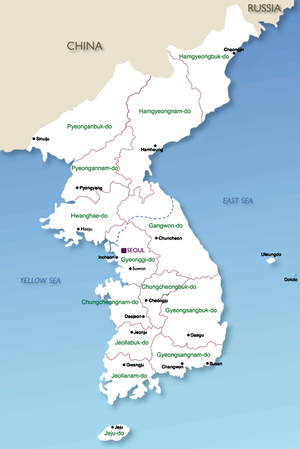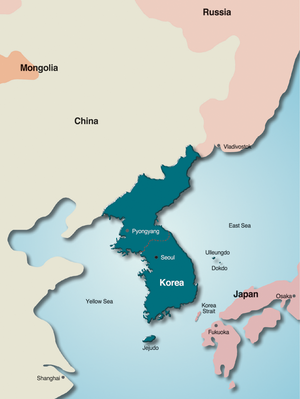XO Korea/XO Deployment: Difference between revisions
| Line 120: | Line 120: | ||
This is to show the status of establishing [[OEA|Open Enterprise Architecture]] and its applications on ''Course Development'', ''Governmental Services'', and ''Business Application''. |
This is to show the status of establishing [[OEA|Open Enterprise Architecture]] and its applications on ''Course Development'', ''Governmental Services'', and ''Business Application''. |
||
=== Open Enterprise Architecture === |
=== Open Enterprise Architecture === |
||
<div style="background-color: #F5F5F5;"> |
|||
<div style="margin: 0px; font-size: 100%;"> |
|||
<table cellpadding=1 cellspacing=1 style="border-collapse: collapse; background: #f5f5f5;"> |
|||
<tr style="height: 3px;"><td></td></tr> |
|||
<tr style="background-color: #E2EDFF; padding-left: 3px; padding-right: 3px;"> |
|||
<td style="background-color: #C3D9FF; border: 1px #666 solid; padding: inherit;">[[XO Korea/oea|OEA]]</td> |
|||
<td style="border: 1px #666 solid; padding: inherit;">[[XO Korea/oea/brm|BRM]]</td> |
|||
<td style="border: 1px #666 solid; padding: inherit;">[[XO Korea/oea/drm|DRM]]</td> |
|||
<td style="border: 1px #666 solid; padding: inherit;">[[XO Korea/oea/scrm|SCRM]]</td> |
|||
<td style="border: 1px #666 solid; padding: inherit;">[[XO Korea/oea/trm|TRM]]</td> |
|||
<td colspan="10" style="background-color: #f5f5f5;"></td> |
|||
</tr> |
|||
</table> |
|||
=== Course Deployment === |
=== Course Deployment === |
||
Revision as of 21:53, 17 May 2007
환영합니다 | Portal | XO Korea | Deployment | Content | Hardware | Software | Mesh Network | Ethics | LOS | XO City | Accreditation | Consortium
This page is to show the progress of XO deployment in Korea (both South and North) from the aspects of physical distribution and architecure development.
Hardware Deployment & National Mesh Network
This is for physical distribution of XO and its variation machines, and for establishing Korean Mesh Network.
Overall Deployment
The regional status of XO deployment in Korea will be estimated by the availability of Korean Mesh Network.
- If residents in a particular region are fully covered by wireless mesh network composed of XO and its variations, the region is colored Green.
- If more than a half residents in a region is covered by wireless mesh network composed of XO and its variations, the region is colored Red.
- If some residents in a region is covered by wireless mesh network composed of XO and its variations, the region is colored Orange.
- If no residents in a region is yet covered by wireless mesh network composed of XO and its variations, the region is colored Yellow.
- If no residents in a region WILL BE covered, in a near future, by wireless mesh network composed of XO and its variations, the region is colored Gray, and currently the North part of Korea (North Korea) is.
From OLPC Viewpoint: How does the color/status scheme work?
If using the OLPC color scheme, Korean XO deployment may be described as;
Basically regions in the Korea map are soon coded in four colors (plus a generic one):
| green | those regions we plan to pilot |
|---|---|
| red | those regions we plan to include in the post-launch phase |
| orange | those regions who have expressed interest at the Local-Ministry-of-Education (교육청) level or higher |
| yellow | those regions who are currently seeking local governments' support |
| gray | regions under the radar or that have not made contact with the XO Korea |
For a larger image and textual list you can click on the image on the right, or see the status by Region page
Educational Deployment: Rabbiting
There are more than 30,000 schools, colleges, or other educational facilities in Korea. You can see rabbit ears at a school's location if the school deploys XO.
Governmental Deployment
There are more than 10,000 states, cities, counties, or other governmental organizations in Korea. You can see rabbit ears at a government's location if the local government deploys XO for their residents.
At the end of year 2005, there were 931,025 governmental employees, and currently (June 1st, 2007) are about 960,000 employees.
We estimate there shall be about 50,000 Governmental Servers, each of which will do a role of virtual government. For functions to be loaded on each server, see Governmental Fuctions, composed of about 60,000 rough functions, each again being composed of 1~10 sub-functions.
- XO Budget = Num of (Students + Teachers + Officers) * $220 (per Person cost)
- per Person Cost $220 =
- $200 -- Unit Price of Larger XO +
- $10 -- 1/20 of Unit Price of School Server +
- $10 -- Logistics + Extra Machines cost + Other Expenses
- See Financial Plans for details.
| Government Deployment | National Government | Local Governments | Governmental Subsidiaries | ||||||||||
Business Deployment
XO Korea classifies all business sectors in Korea into about 150,000 categories based on United Nation Standard Product & Service Classification, and has set very detailed plans to deploy Larger XO onto business sections. See XO Korea/business overview about detailed economic features of Korea, such as GDP, GNP, Gloss Income per Household etc.
Architecture Development
This is to show the status of establishing Open Enterprise Architecture and its applications on Course Development, Governmental Services, and Business Application.

